Day Seven October 16th Going On Safari At Victoria Falls (Page Five)
Today we cross a 110 year old bridge to see the view then off to a local safari service to ride on elephants and see the sites atop an amazing vehicle... elephants!.
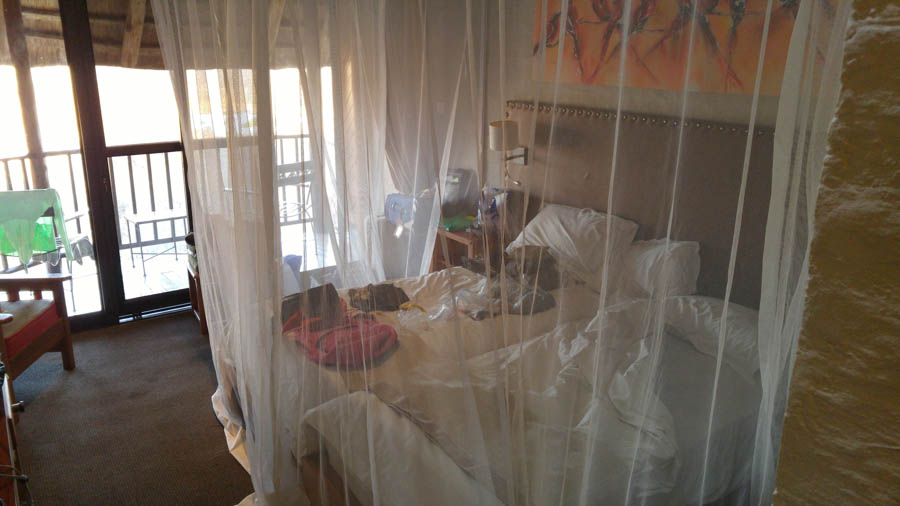
"Oh Pooh! Do we have to get up? Also please protect us from the little mosquitoes." We were taking malaria meds
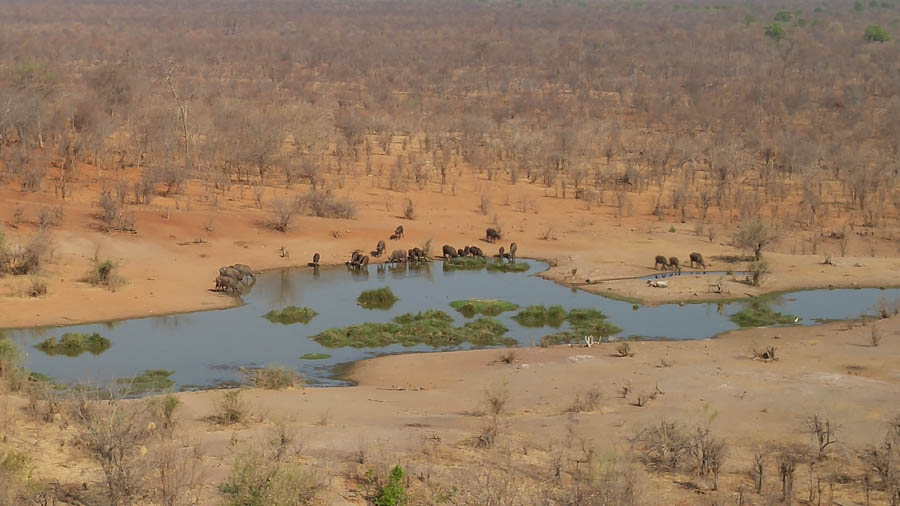
Right out window... What a view from our balcony
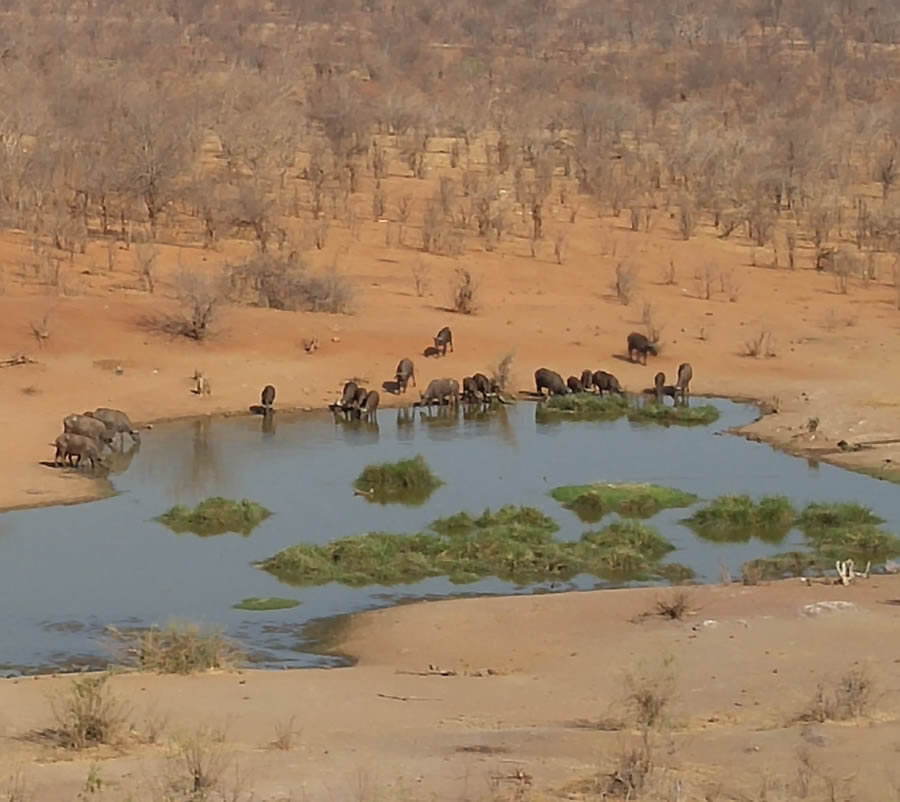

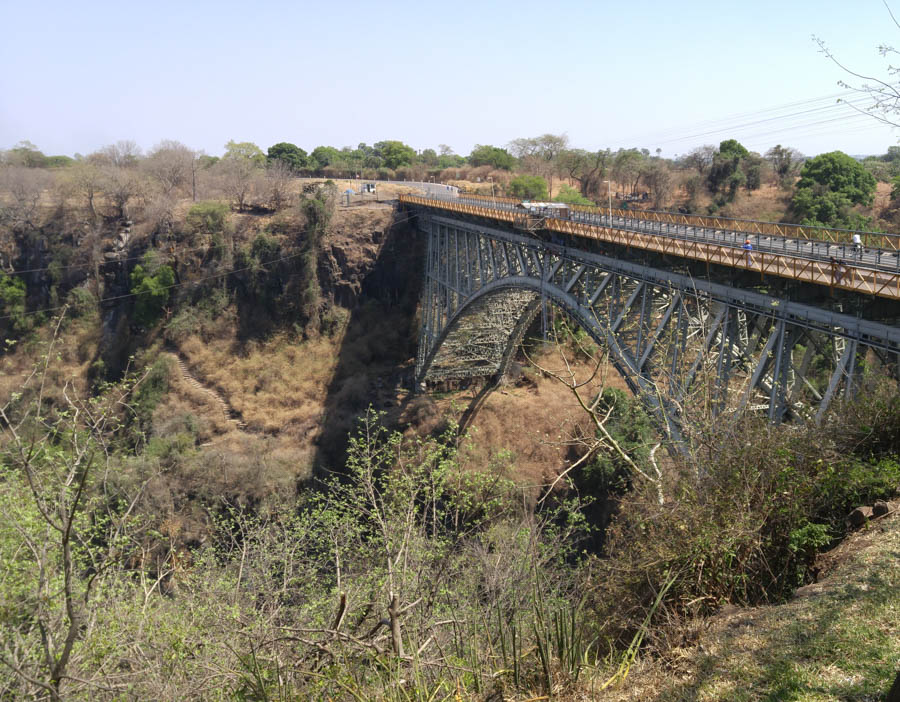
An amazing feat considering the time-frame
it was designed and built
Did You Know? - The Victoria Falls Bridge crosses the Zambezi River just below the Victoria Falls and is built over the Second Gorge of the falls. As the river is the border between Zimbabwe and Zambia, the bridge links the two countries and has border posts on the approaches to both ends, at the towns of Victoria Falls, Zimbabwe and Livingstone, Zambia.
The Victoria Falls Bridge was built in 1905 using revolutionary engineering methods for its day.

"What is all this for?"
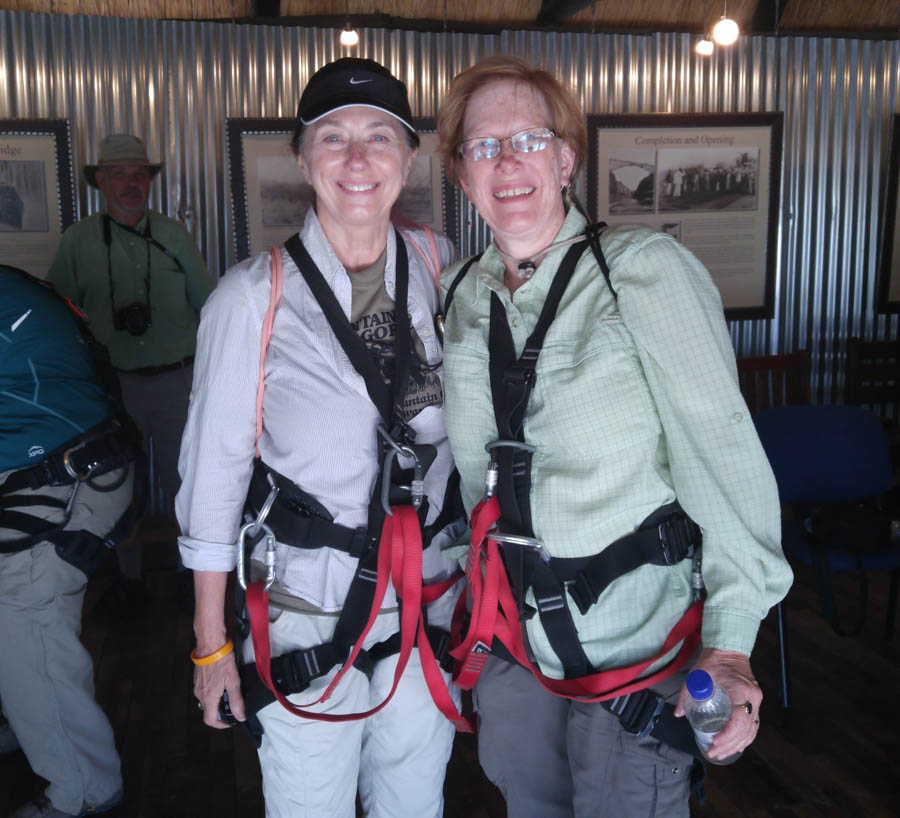
Bungee jumping.... No! We needed this to walk under the bridge!
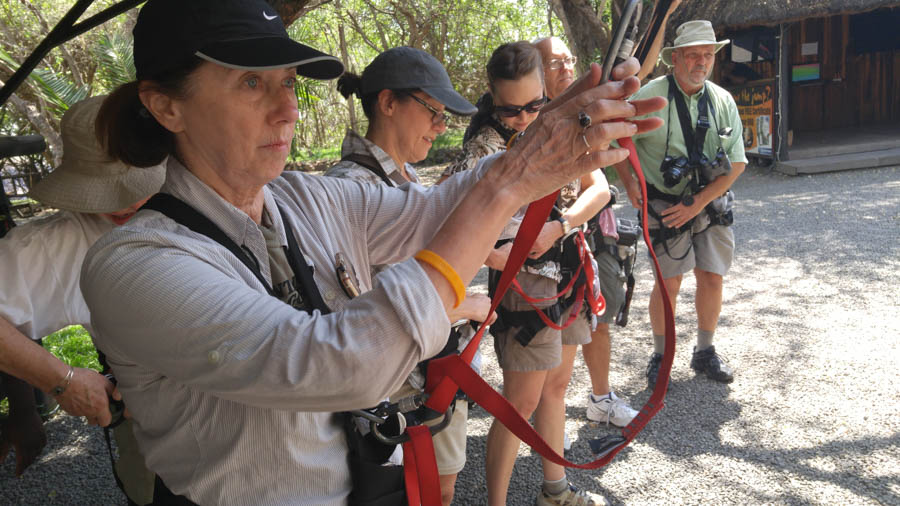
Snapping pictures... Important BEFORE one goes across the bridge

"We are fearless" - See how we attach ourselves to the wire?
We had 2 clamps and as we traversed if we unhooked one clamp
to go around a pillar, we always kept one attached

Did You Know? - The bridge was constructed in England by the Cleveland Bridge & Engineering Company, before being shipped to the Mozambique port of Beira and then transported on the newly constructed railway to the Victoria Falls. It took just 14 months to construct and was completed in 1905.
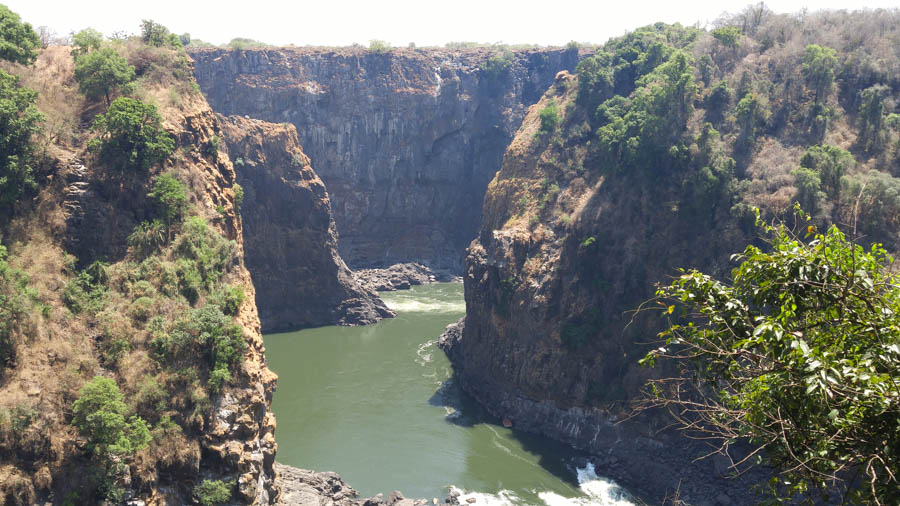
The view was spectacular
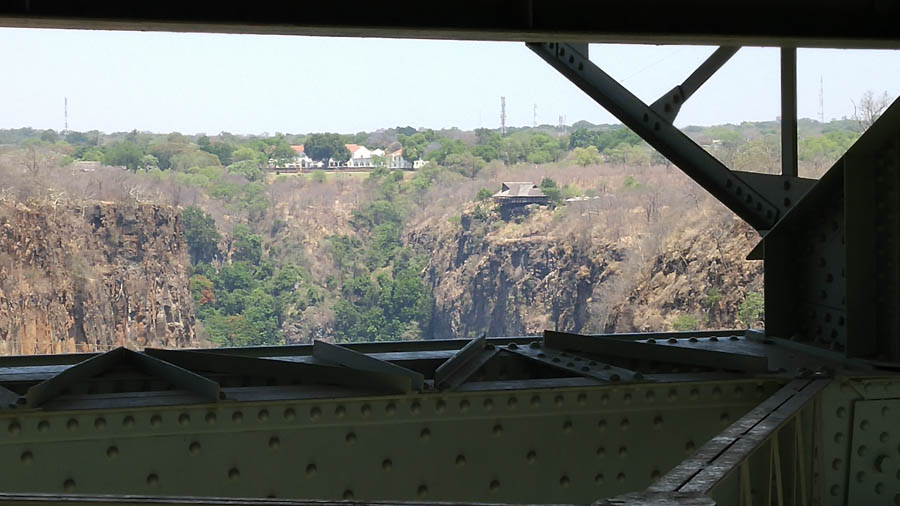
We could see the lodges along the ravine...The white one is the hotel where Queen Elizabeth honeymooned
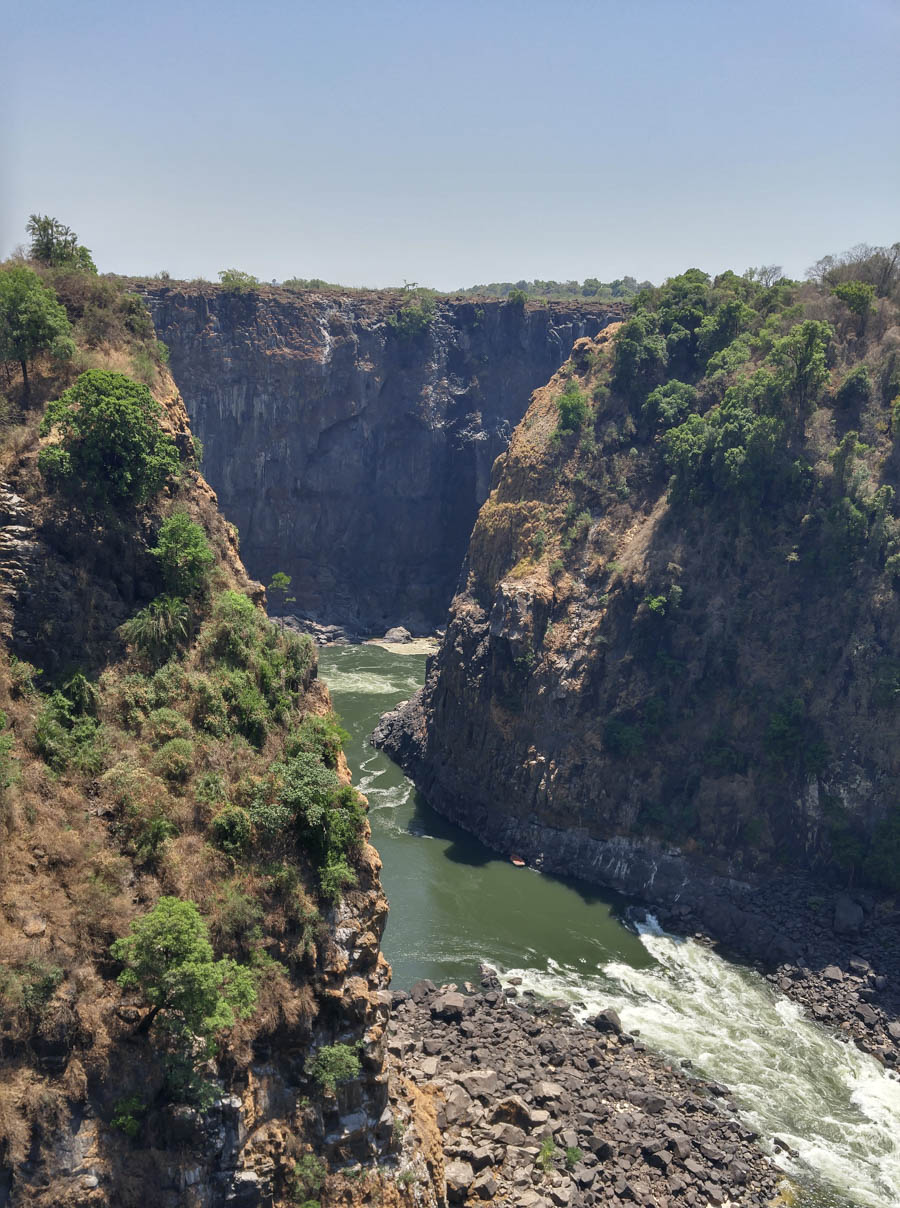
The water is flowing quite fast!
Did You Know? - Constructed from steel, the bridge is 198 metres (650 ft) long, with a main arch spanning 156.50 metres (513.5 ft), at a height of 128 metres (420 ft) above the lower water mark of the river in the gorge below. It carries a road, railway and footway. The bridge is the only rail link between Zambia and Zimbabwe and one of only three road links between the two countries.
We were lucky - a train went over while we walked under the bridge
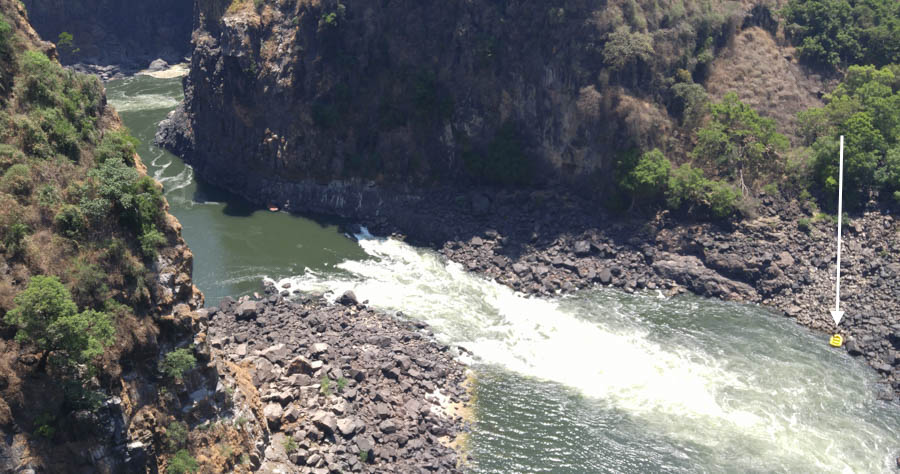
The water can get very high in the rainy season
Notice the little yellow raft in the picture at the right pulled up on the shore
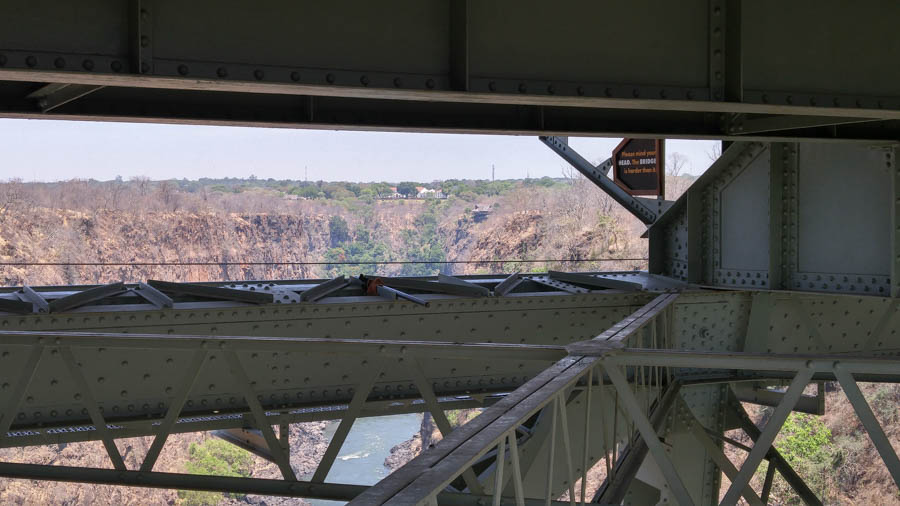
Lots of iron in this bridge - Can see the hotel through the ironwork

Under construction in 1905
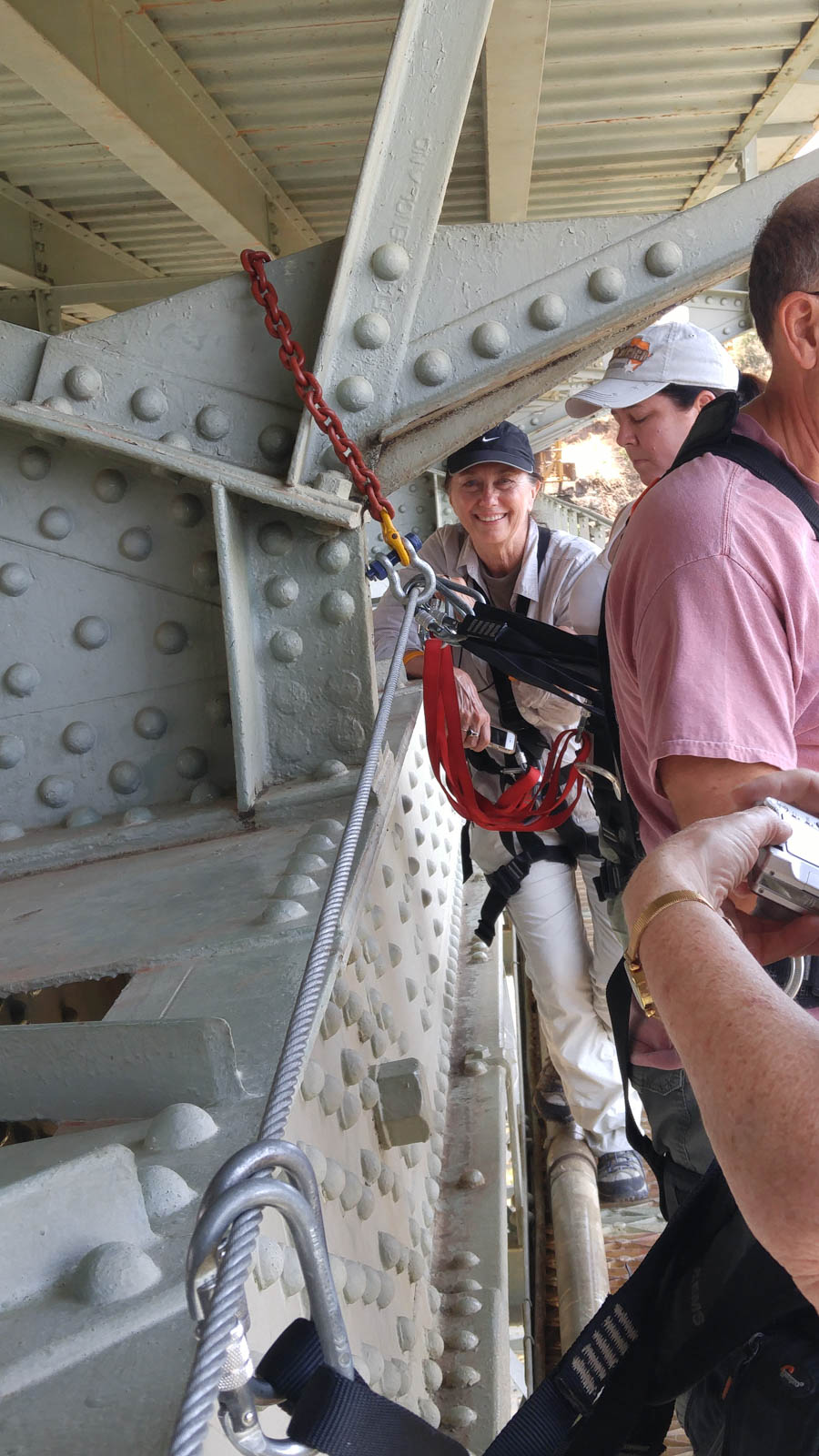
Safety equipment was everywhere

Solid rock!

No kidding!
Did You Know? - The bridge was originally referred to as the Great Zambesi or Zambezi bridge, later becoming known as the Victoria Falls Bridge.
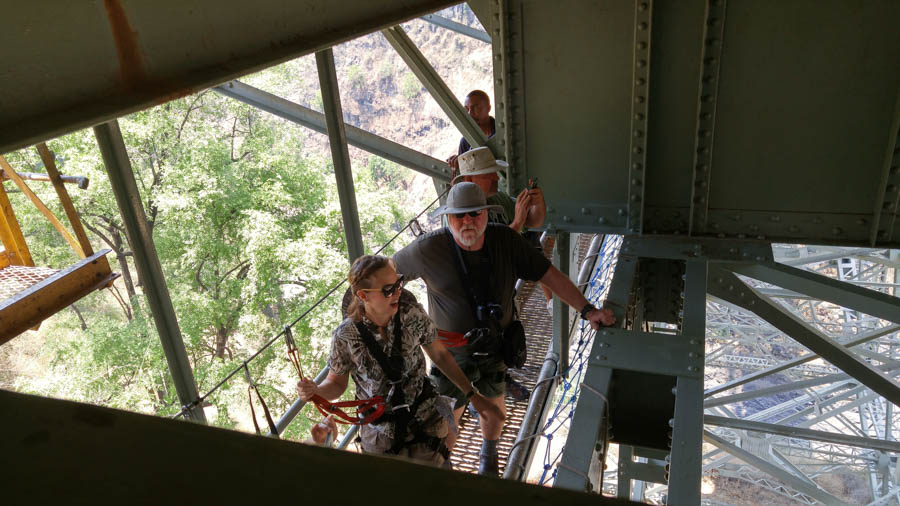
Only 400+ feet straight down
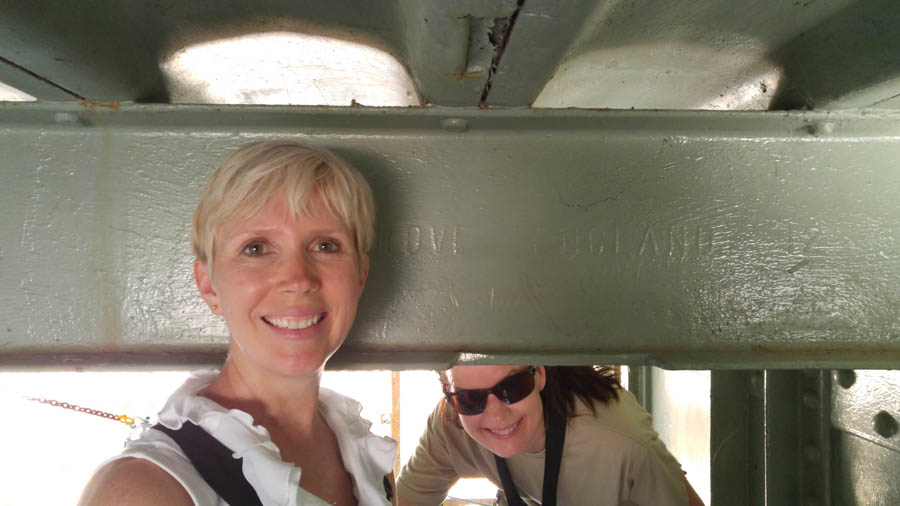
Perhaps a forced smile?
(Can see the stamp on the iron of England)
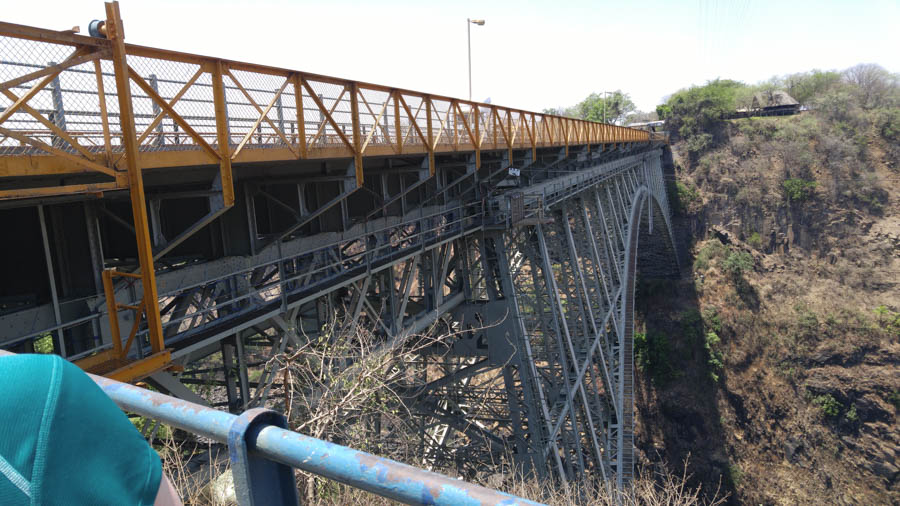
Always being maintained
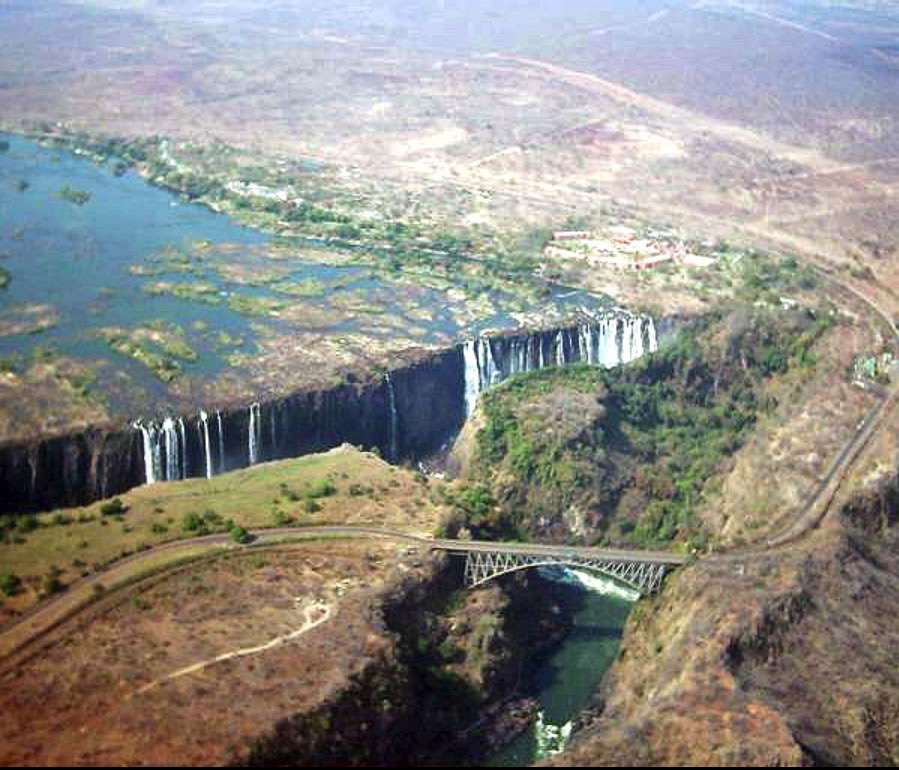
We are hanging out on a 110 year old iron bridge 450 feet above the river!
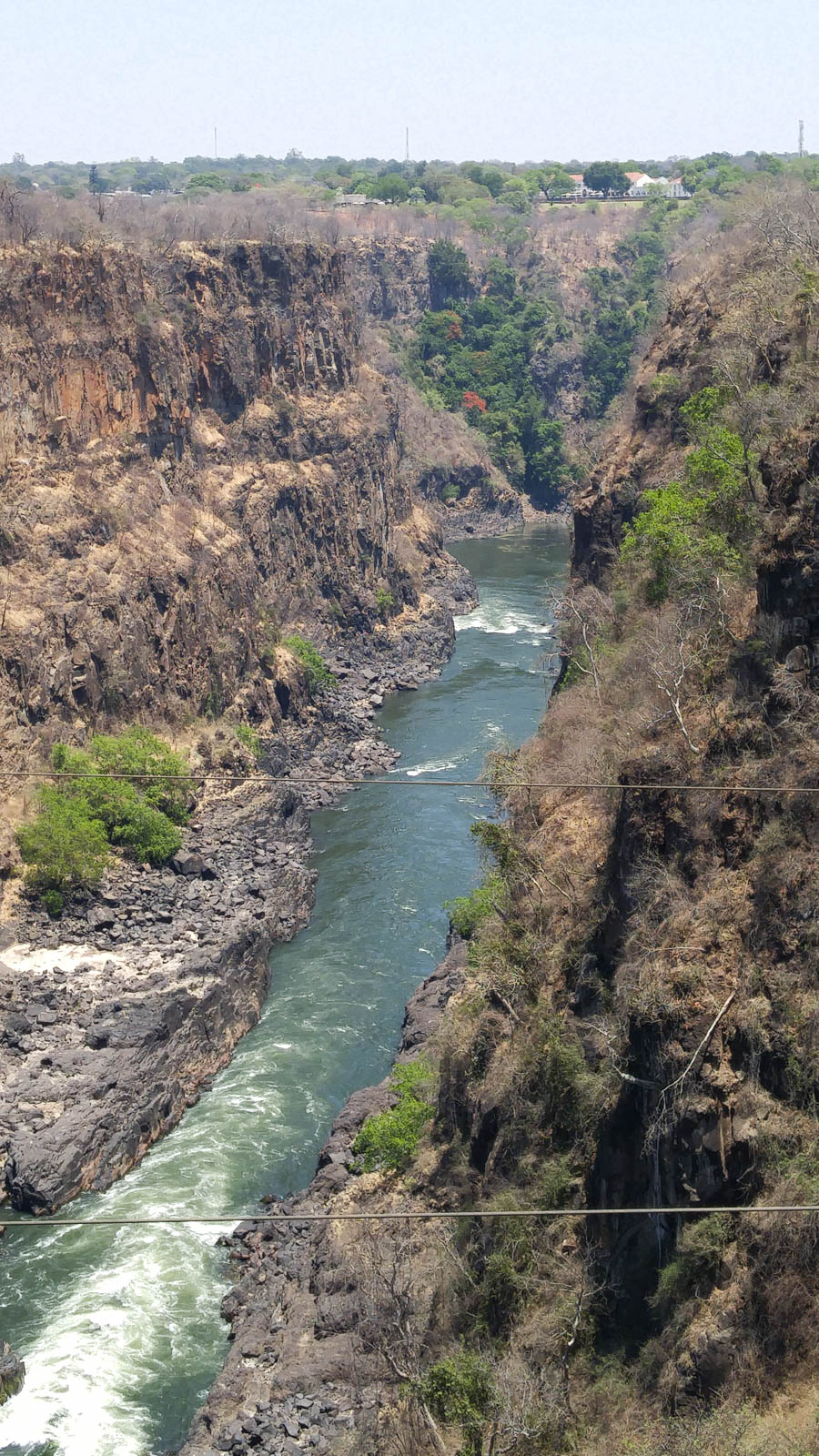
An amazing sound from the rushing water

Amazing for the day
Did You Know? - The construction was completed almost to the day originally planned. On the evening of 31 March 1905, the two parts were ready to be bolted together. They were six inches (15cm) too long. Was this to be an April fool? The day had been one of unbroken tropical sunshine, and the two halves of the cantilever had expanded in the heat. During the night, the wind changed, blowing spray onto the steelwork, cooling and contracting it, and allowing the closing length in the center to be dropped in at seven o'clock the following morning.

Leisurely walk around out hotel while we wait for the afternoon safari
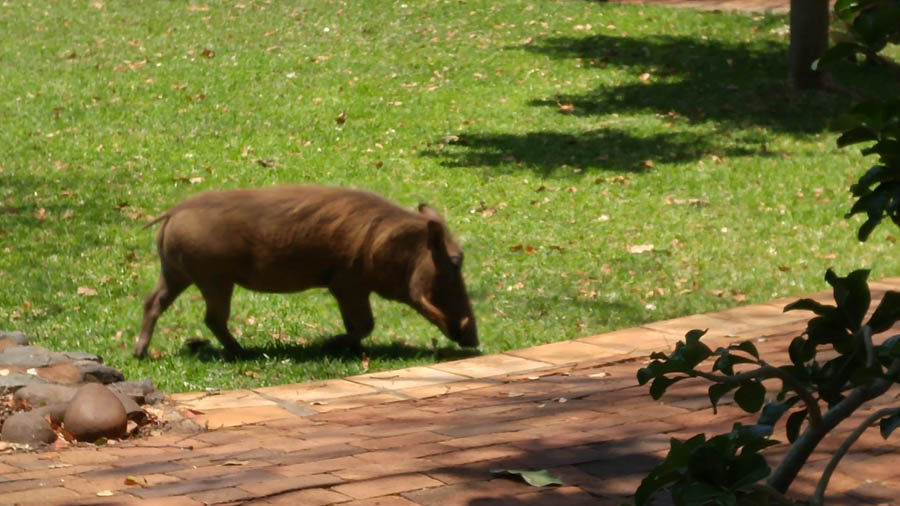
Roaming around the grounds
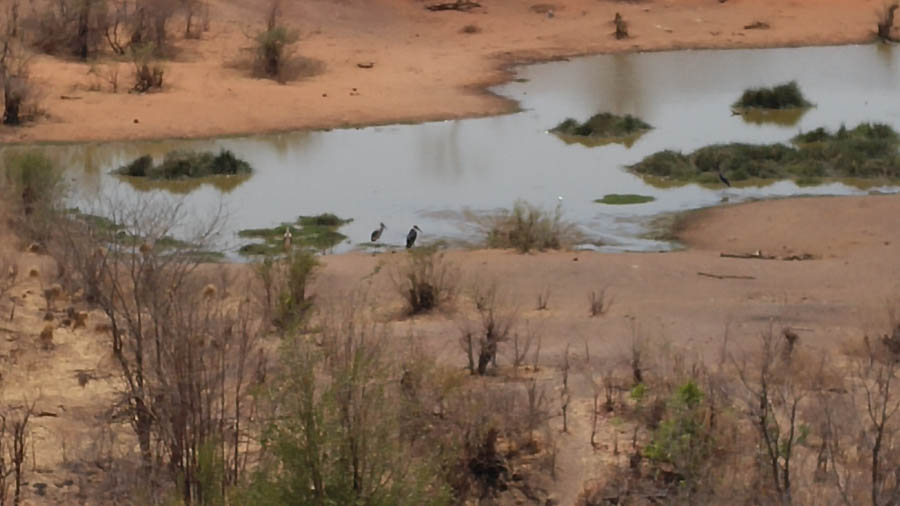
Everywhere all day and all night there is wildlife
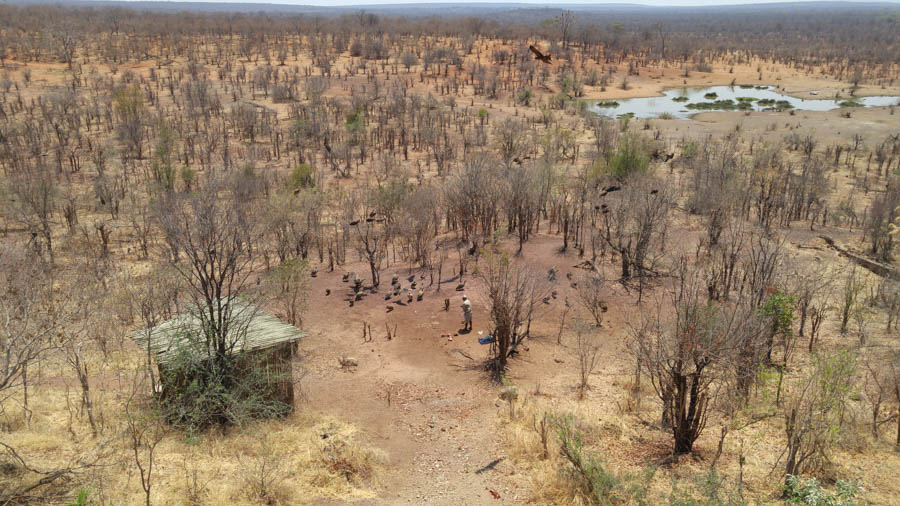
Feeding the vultures

The starting point for our safari is close by

The Safari Lodge was nicely decorated
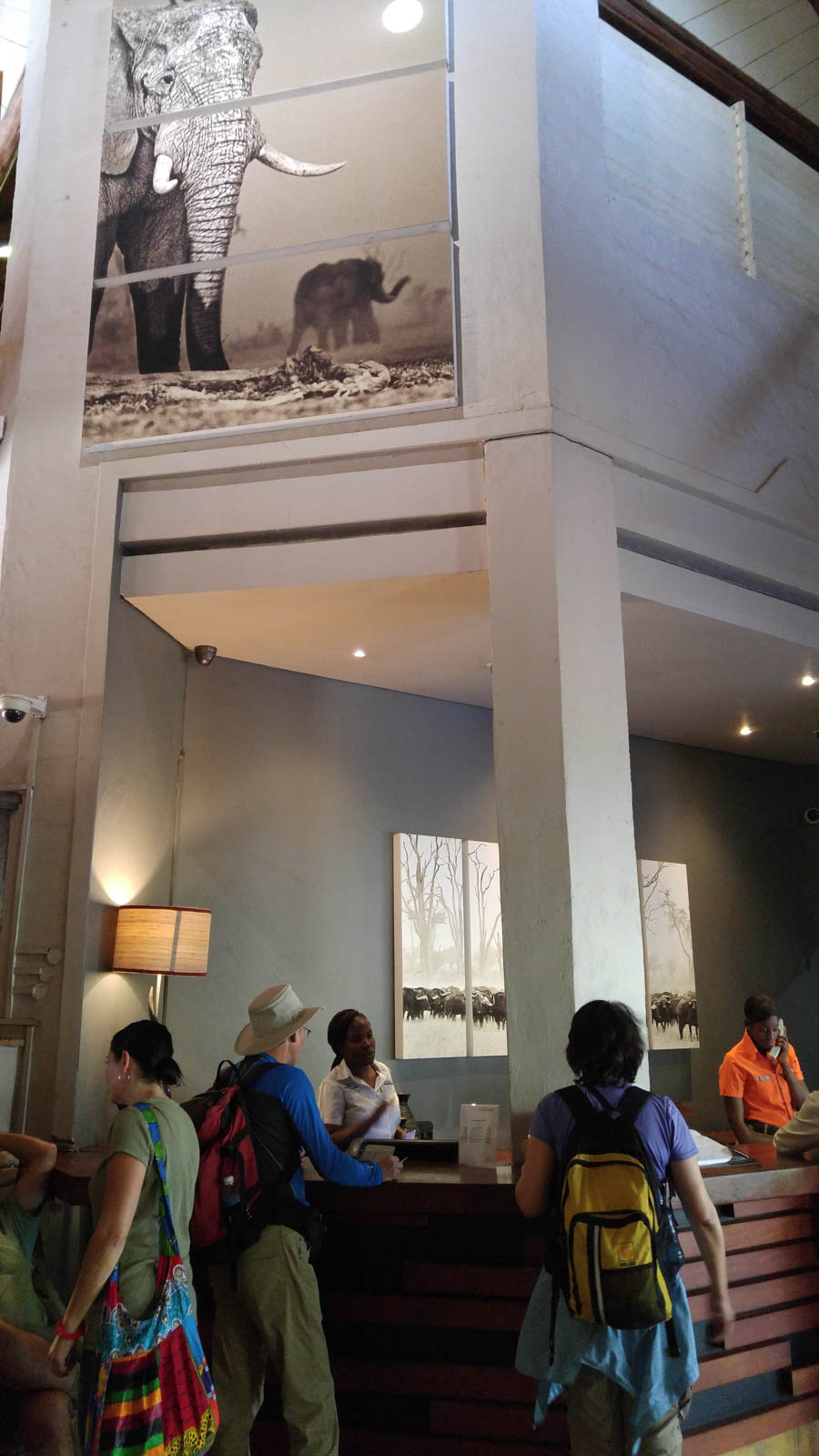
The bus will be here soon!


We went to "The Wallow - Elephant Interaction" for an afternoon of seeing and interacting with the elephants. The Wallow is located within the Victoria Falls concession. We were acquainted with the elephant before we got on their back.
Once on the elephant we began with the ride which lasted for roughly one and a half to two hours. We rode through grasslands and awe-inspiring views of the valley, along the edges of the amazing Batoka gorge.
The sprays of the mighty Victoria Falls were visible in the backdrop. We viewed the animals that are around the area from really close proximities in a more natural state as we were on top of the elephant and the wildlife will be oblivious to our presence for the major part.

Elephants directly ahead
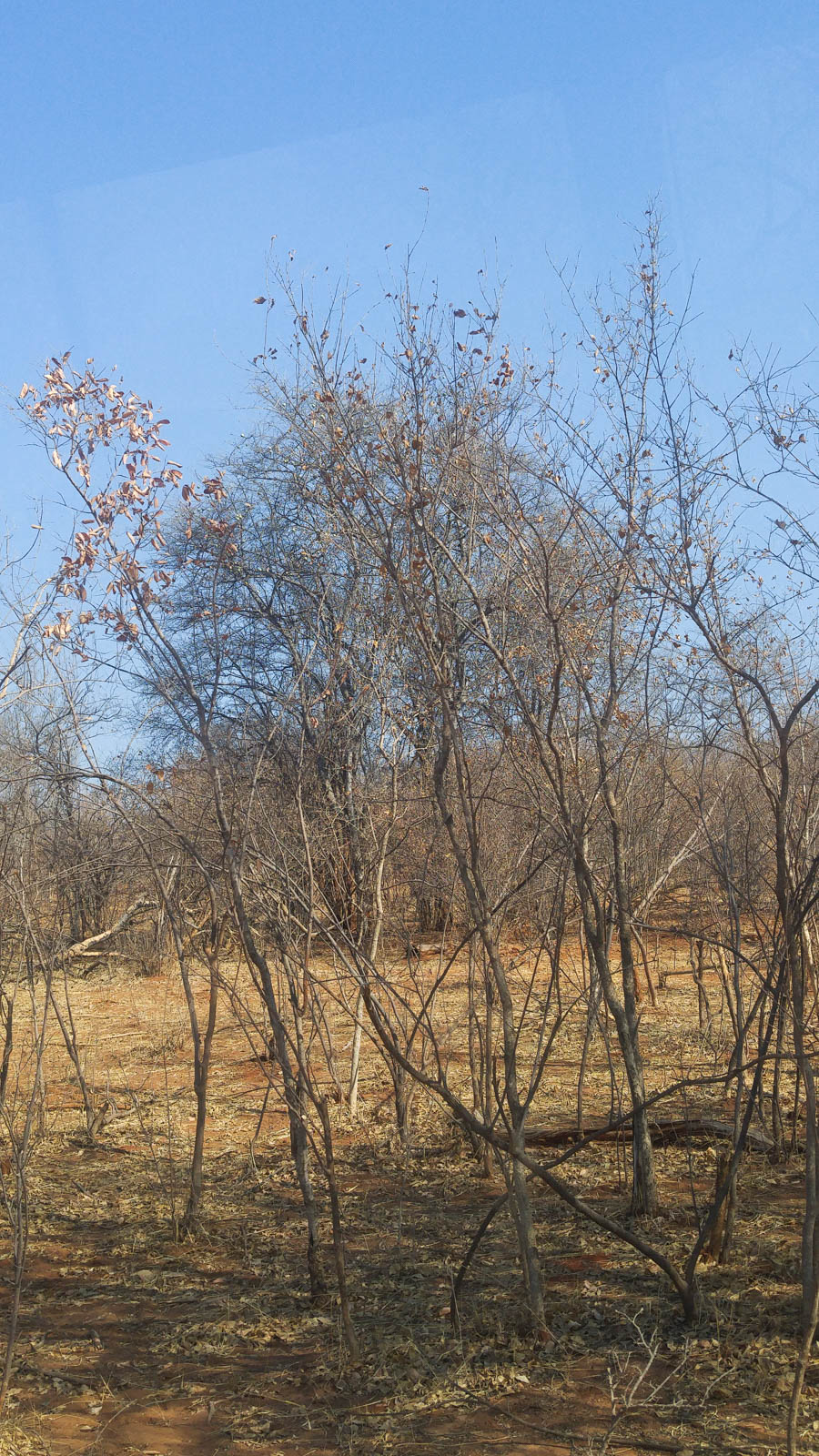
Pretty dry and provides hiding places for many animals
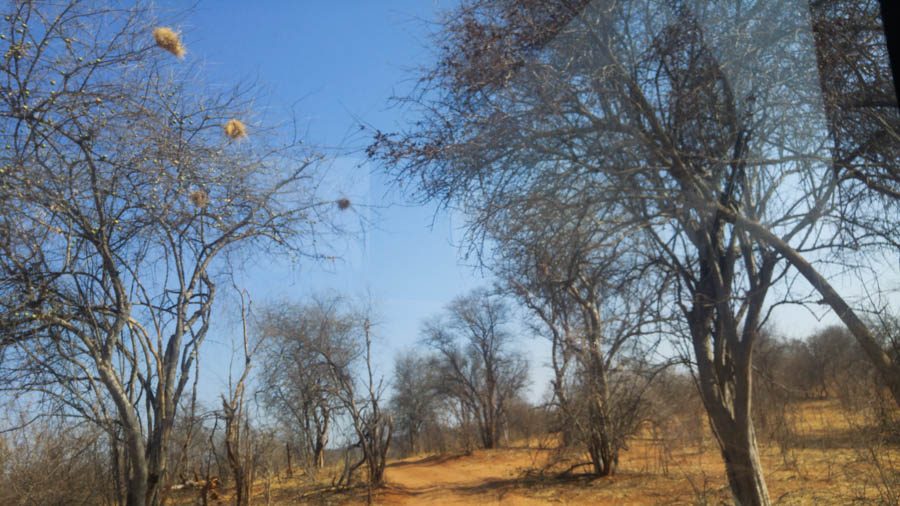
The bus ride was a tad bumpy
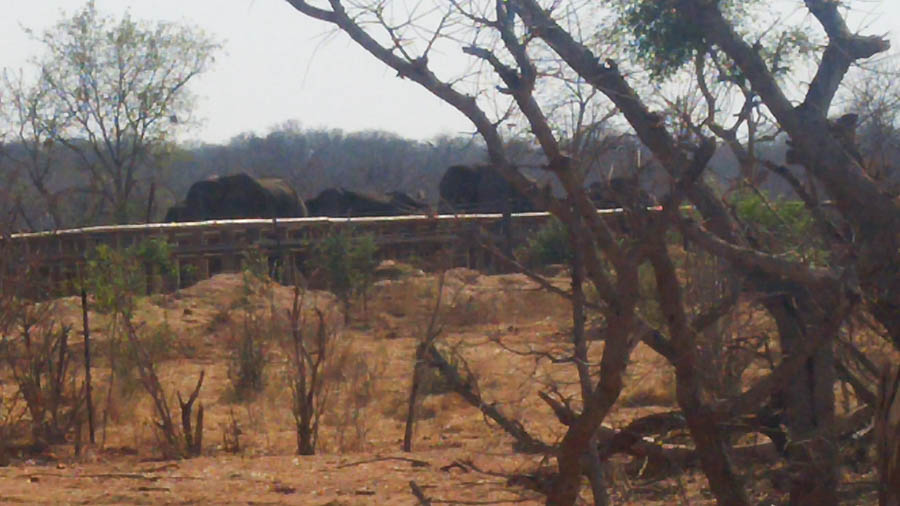
ELEPHANTS!
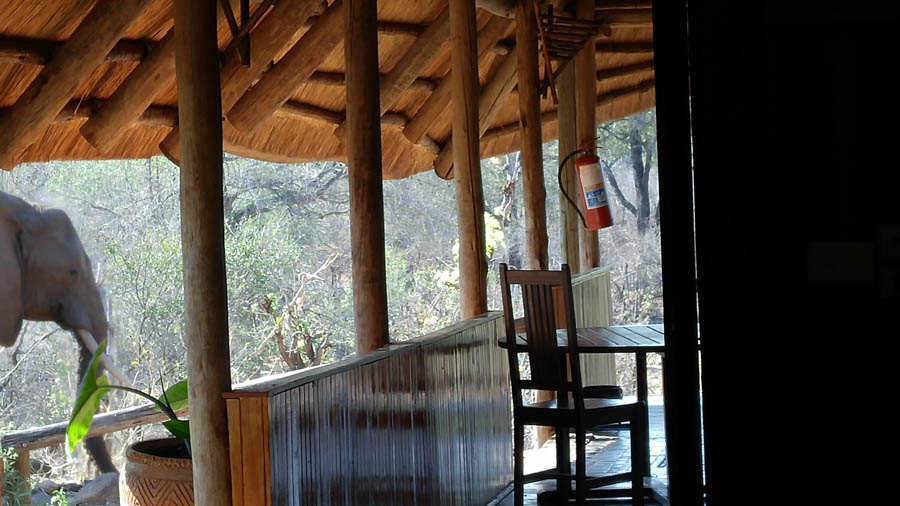
They walk right next to the buildings
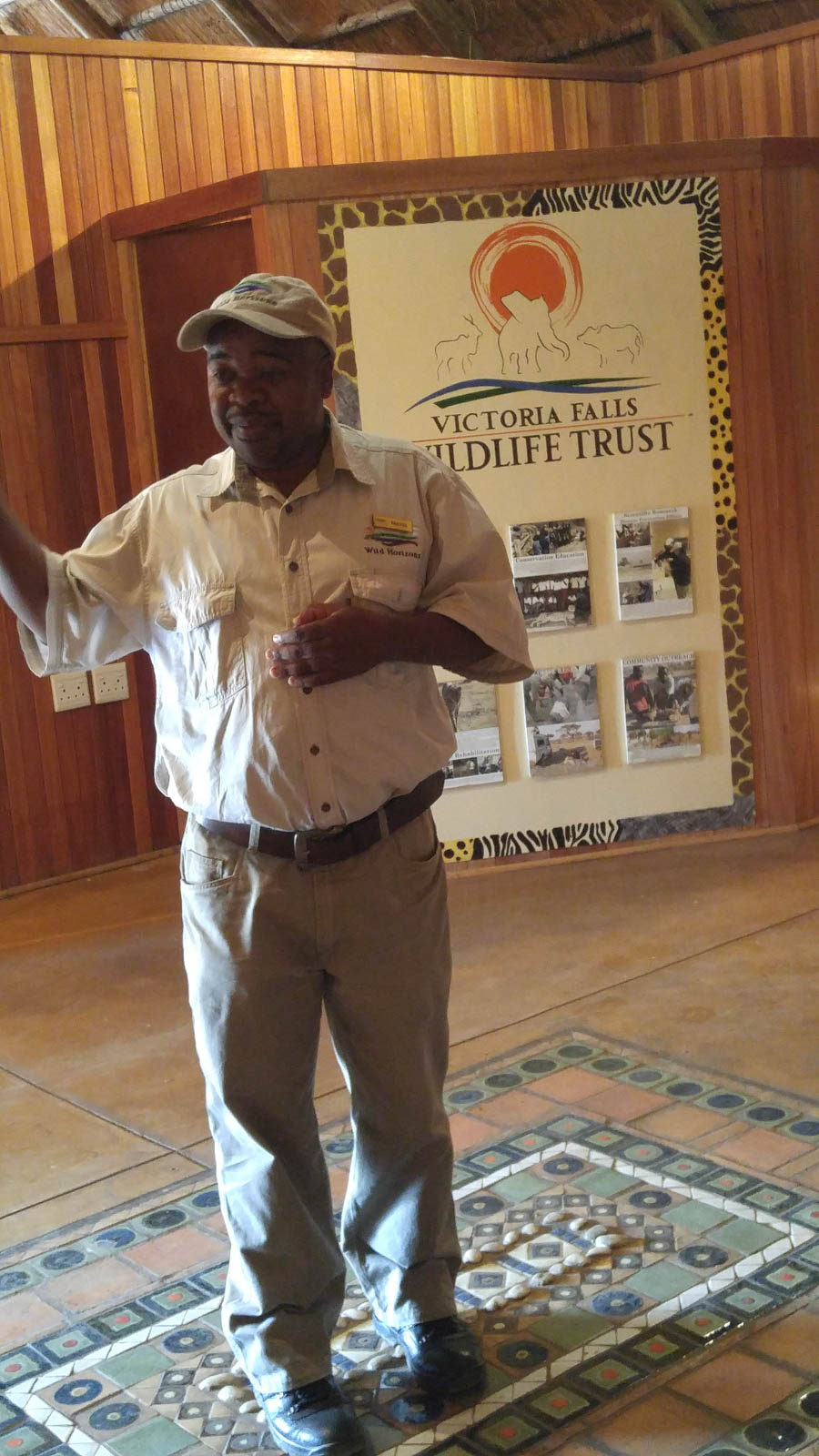
We get the "rules of the road"

The elephants come right up to the terrace
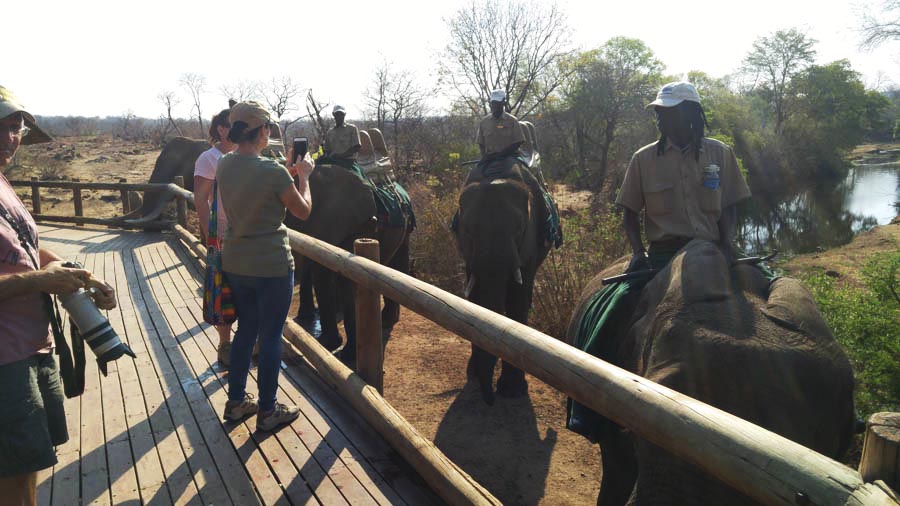
The drivers enjoyed their jobs
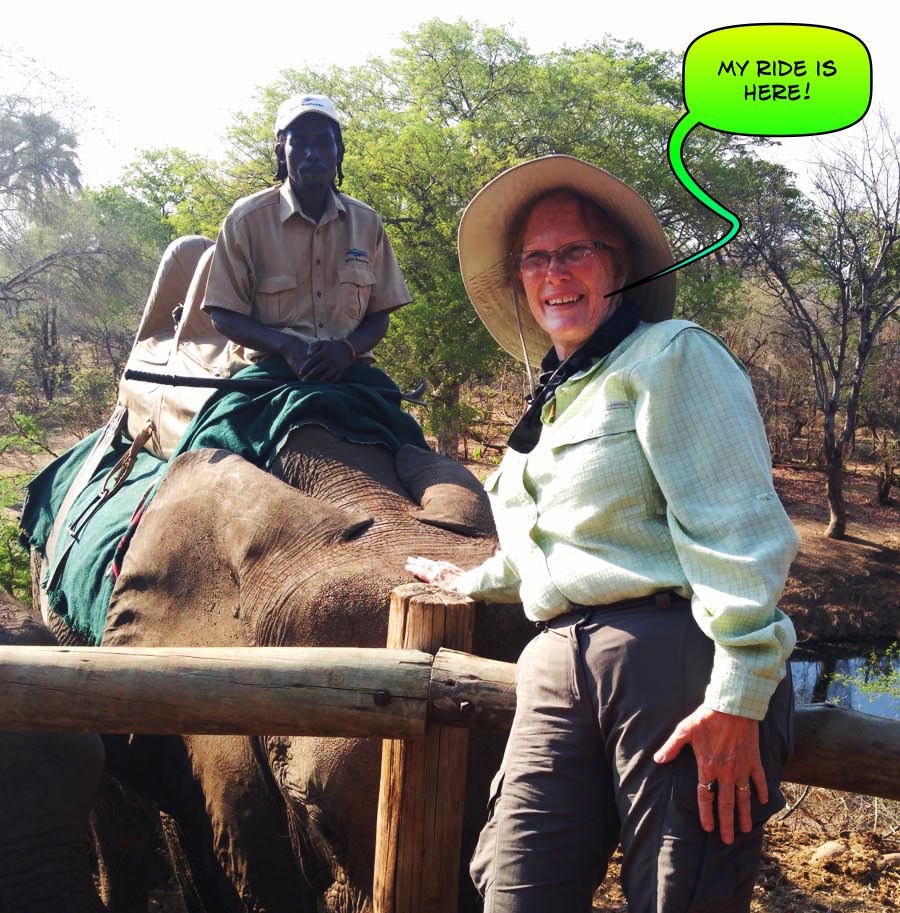
Getting to know
my elephant. Her name is Janet
and her calf walked with us
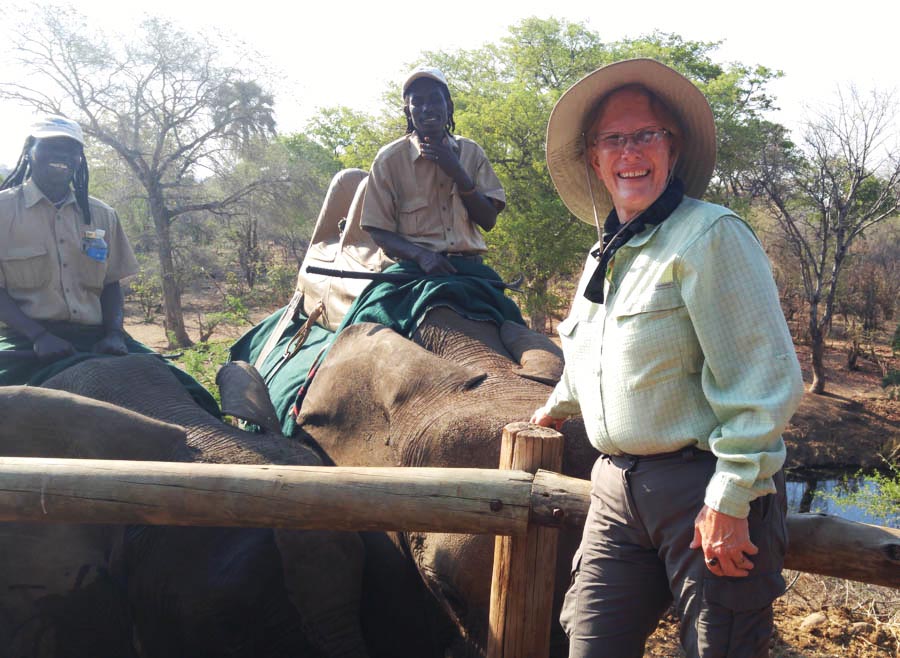
"I called two taxi's"

The nose knows!
Did You Know?
• The largest elephant on record was an adult male African elephant. It weighed about 24,000 pounds and was 13 feet tall at the shoulder!
• Elephants can live to be over 70 years old.
• Only one mammal can’t jump — the elephant.
• The average weight for an elephant heart is about 27 to 46 pounds!
• Elephants have a highly developed brain and the largest of all the land mammals. The brain is 3 or 4 times larger than that of humans although smaller as a proportion of body weight.
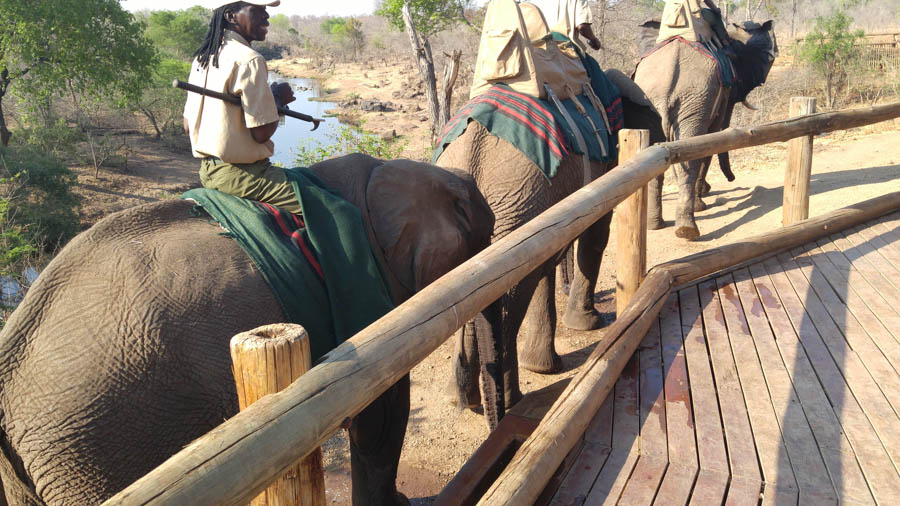
They paraded around the terrace
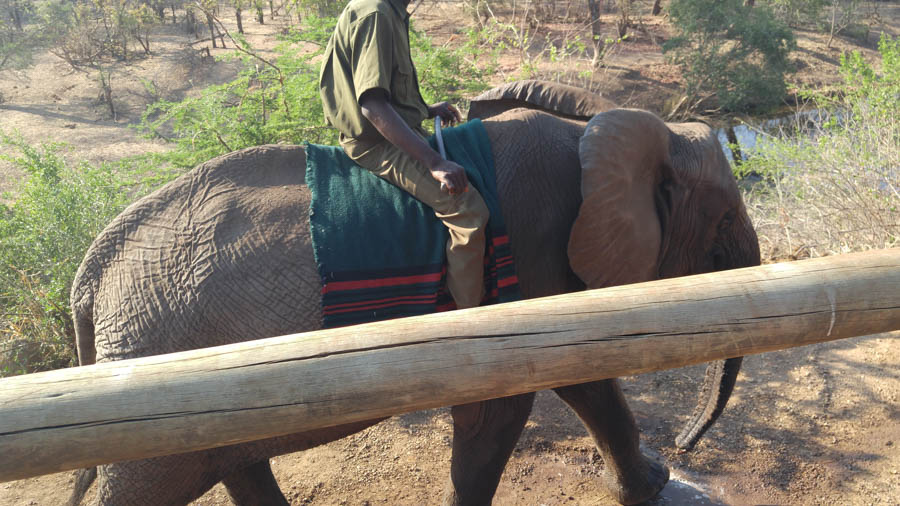
Let's get on board


Easy to do... We hope
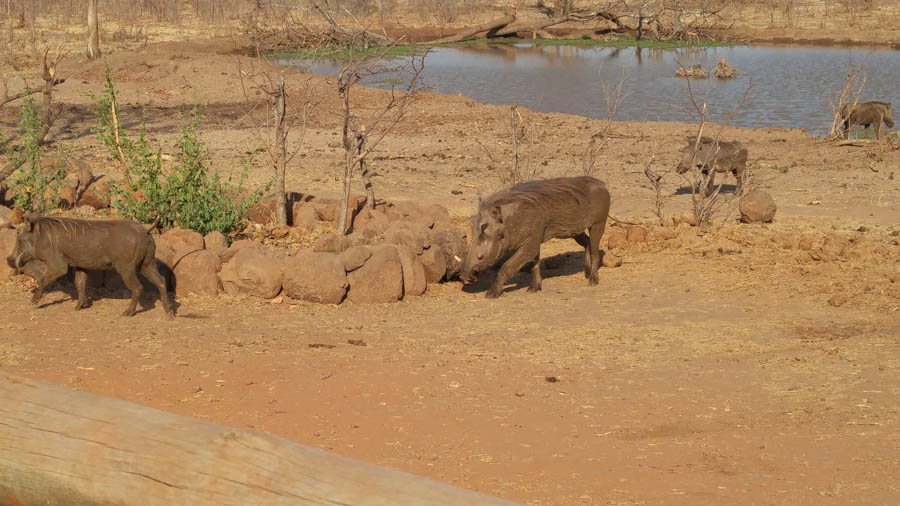
The hogs wanted to give us a ride also!
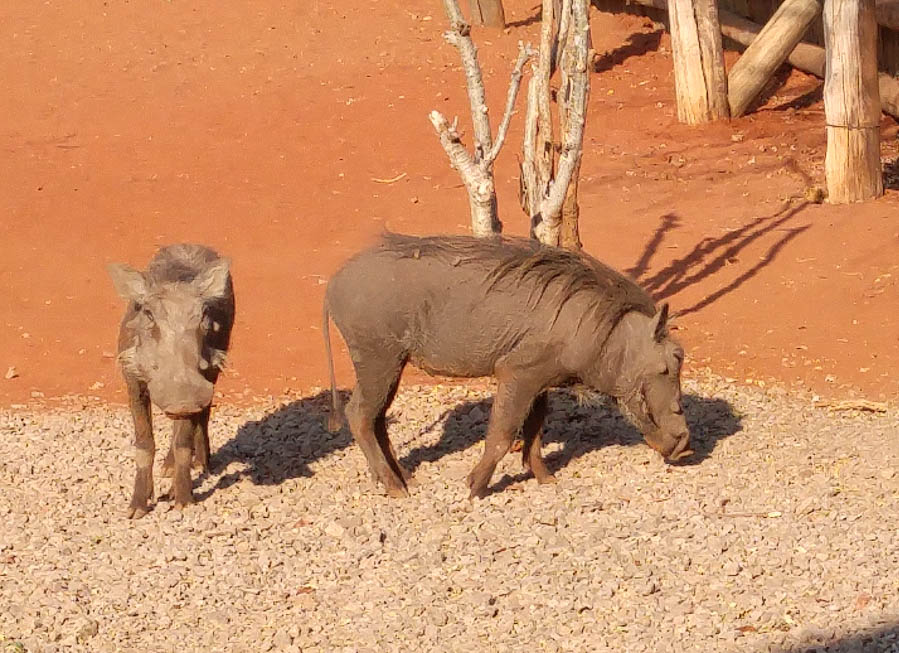
A face only a mother could love
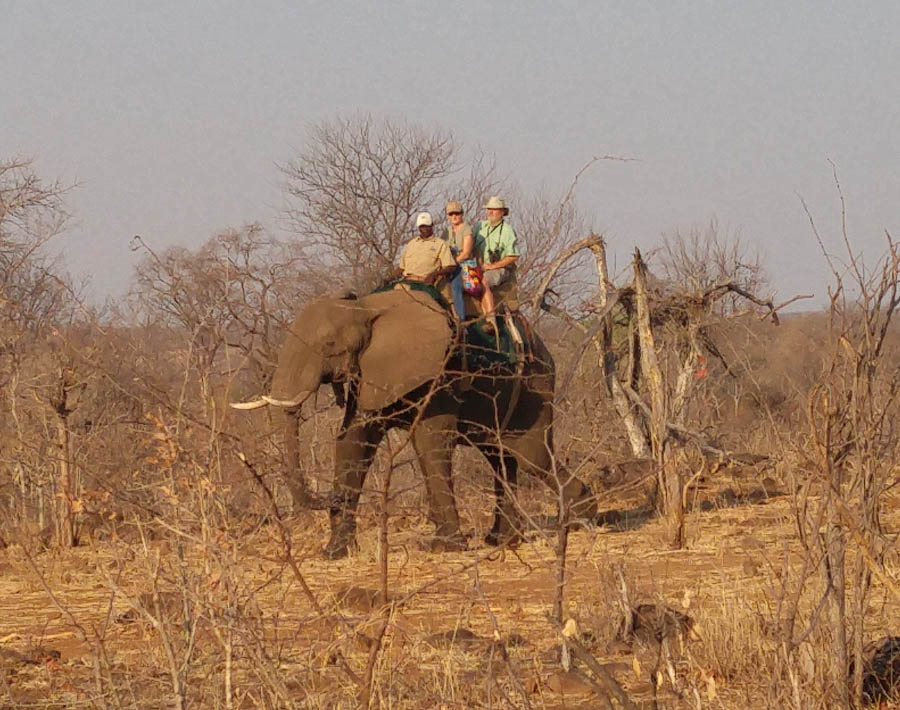
Here we go!
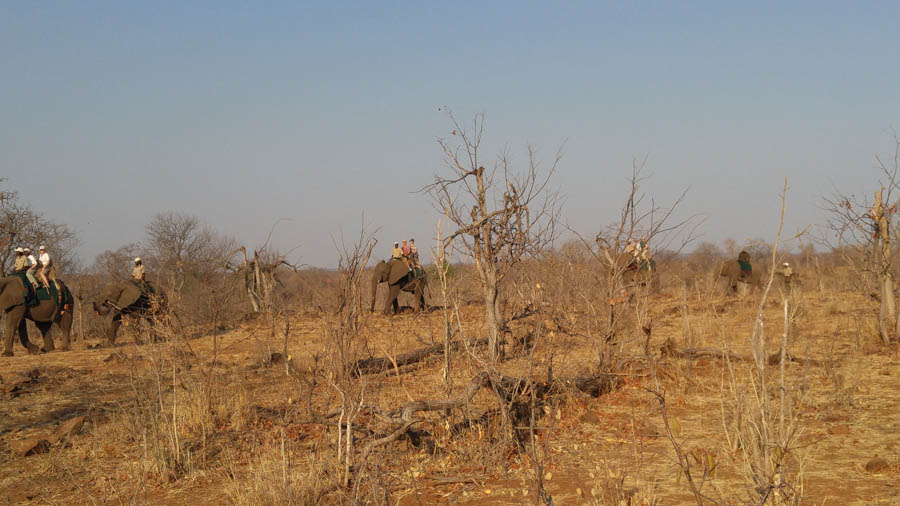
Interesting view from ten feet up!
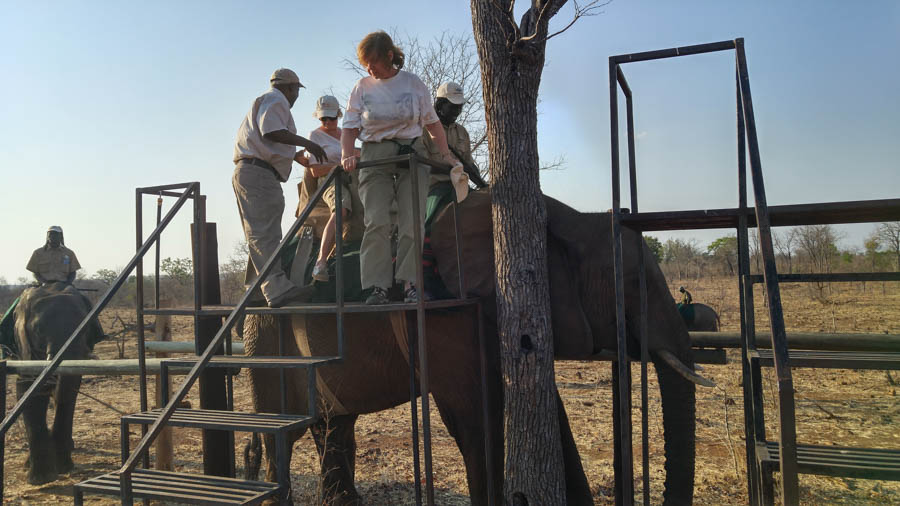
Roll up ramp!

90 minutes of riding is quite a bit
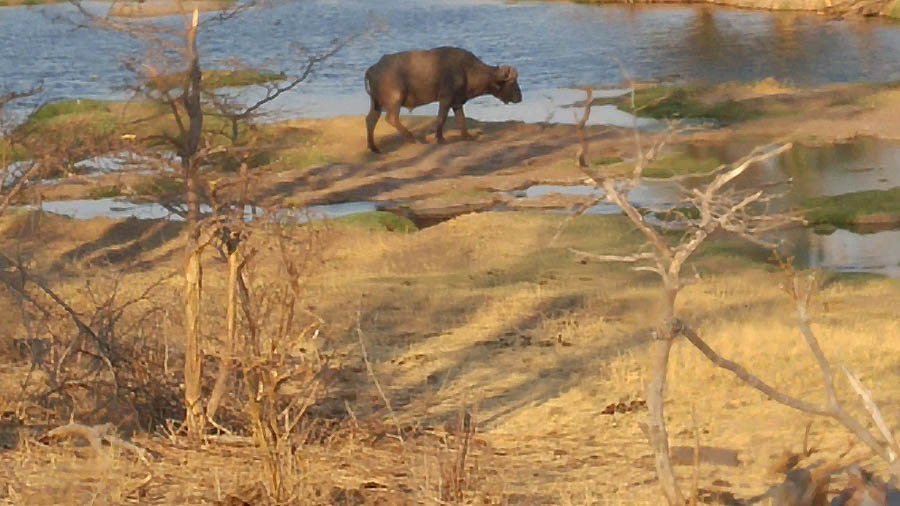
The other animals didn't seem to know we were here. This is a water
buffalo - one of the Africa big 5 (lion, elephant,
Cape buffalo, leopard and rhinoceros)
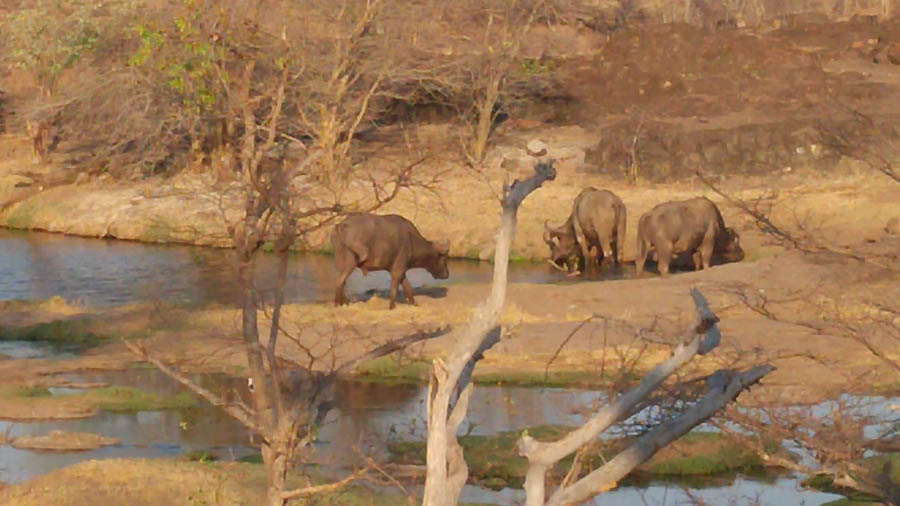
They ignored the elephants!
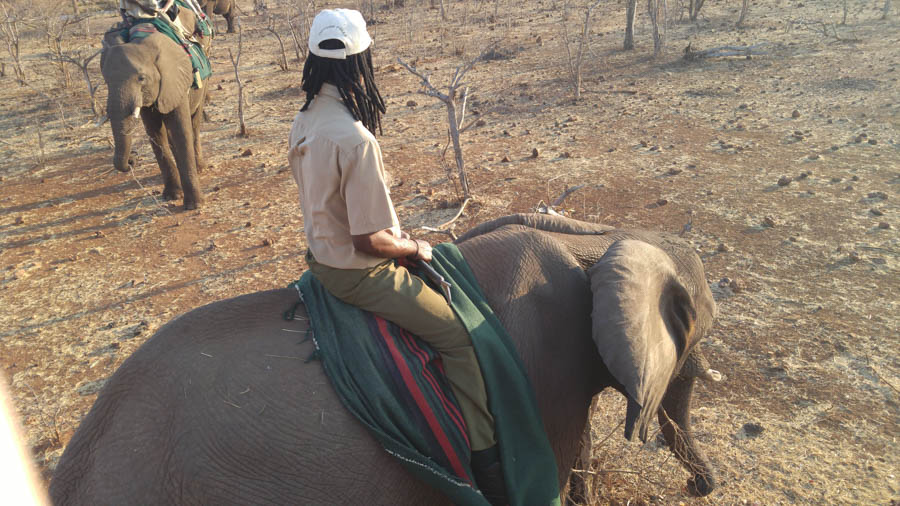
The drivers were experts!
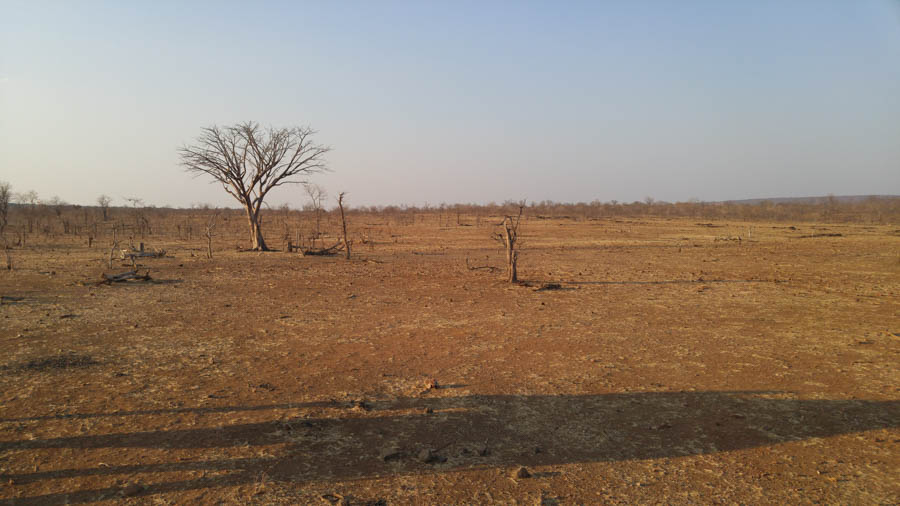
Barren land for miles and miles
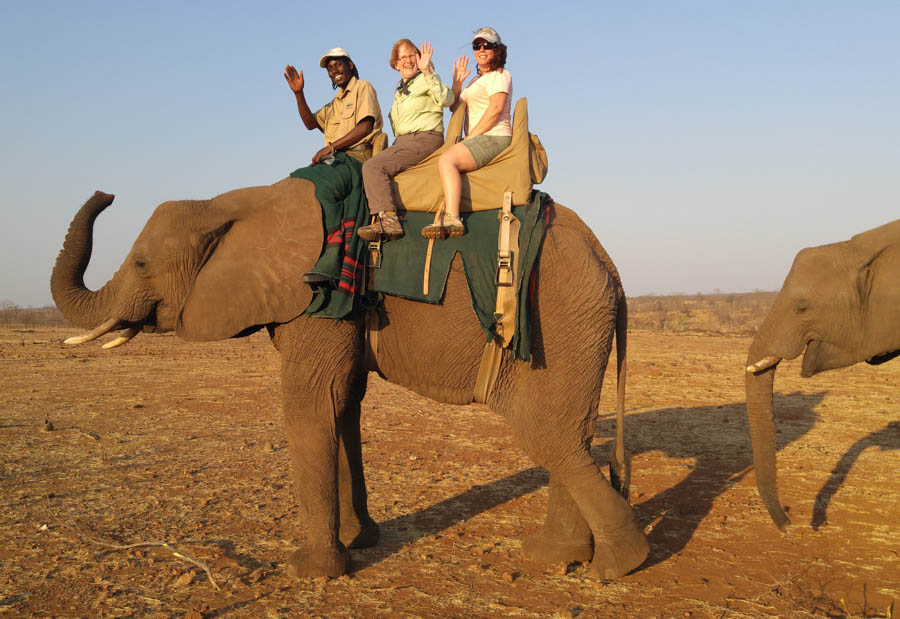
We are having a ball riding Janet with her calf behind
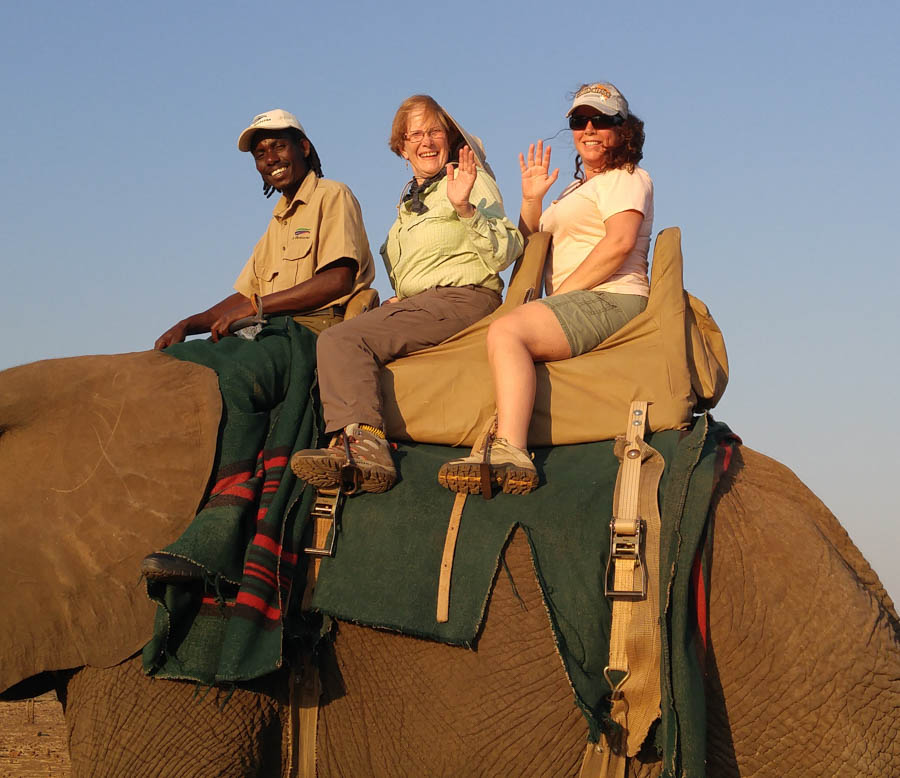
Amazing
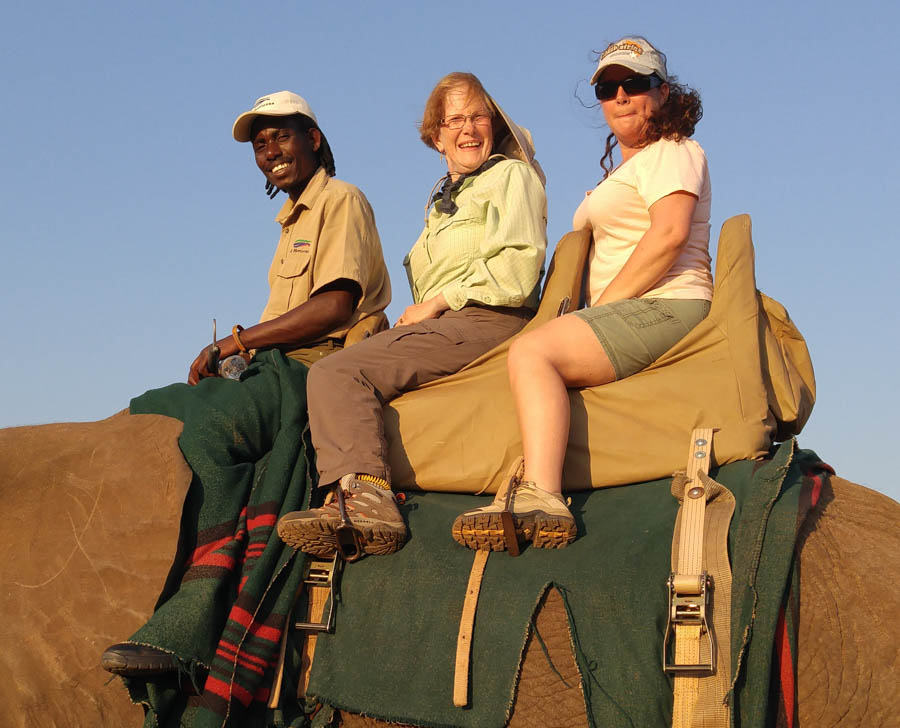
Giddy-Up Go!!

The brown animals are well hidden this time of year
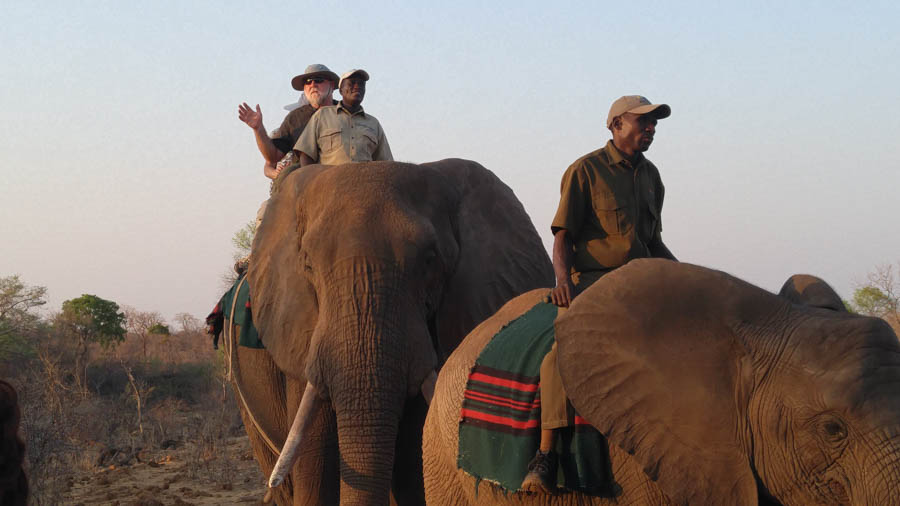
Majestic animals
Did You Know?
• Elephants have a slow pulse rate of 27. For a canary it is 1000!
• An elephant’s skin is an inch thick.
• Elephants have poor eyesight but an amazing sense of smell.
• At the age of 16, an elephant can reproduce, but rarely has more than four children throughout her lifetime. At birth, an elephant calf weighs about 230 lbs!
• Elephants have the longest pregnancy of all the animals. It takes a female 22 months from conception to birth.
• Elephants purr like cats do, as a means of communication.
• Elephants prefer one tusk over the other, just as people are either left or right-handed.
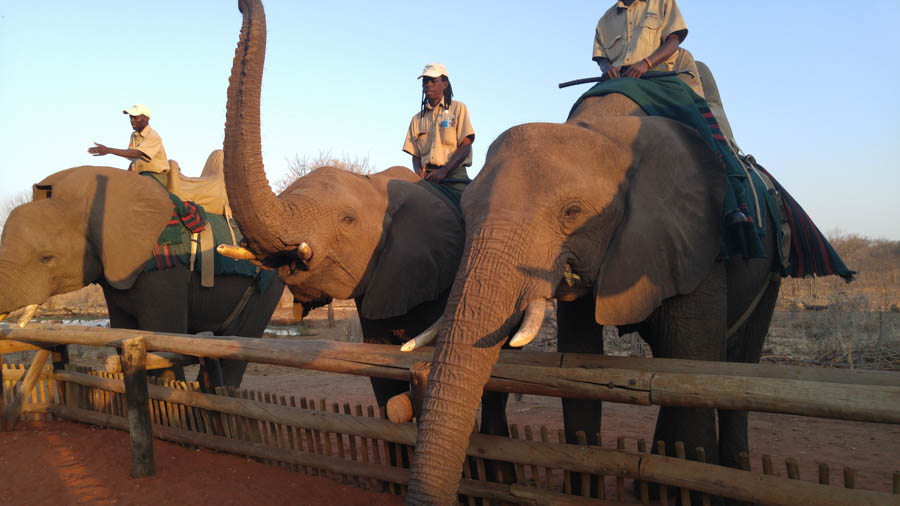
Saying goodbye
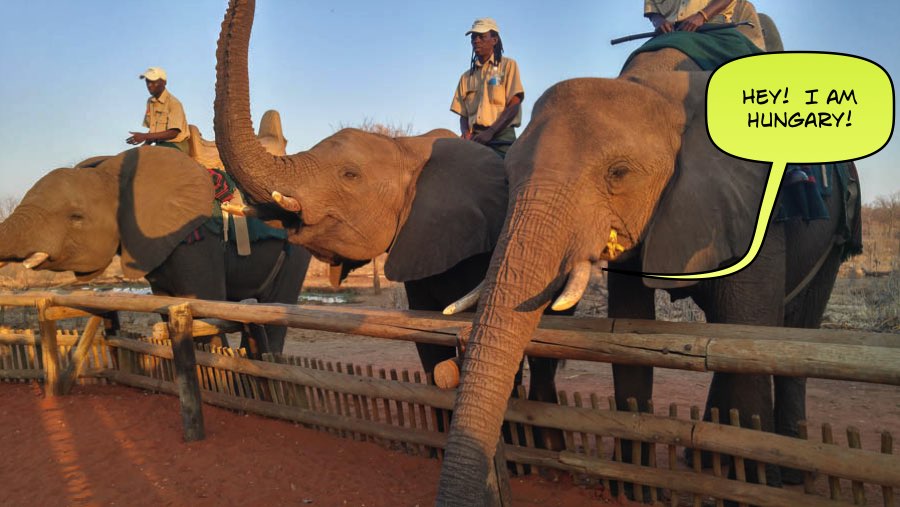
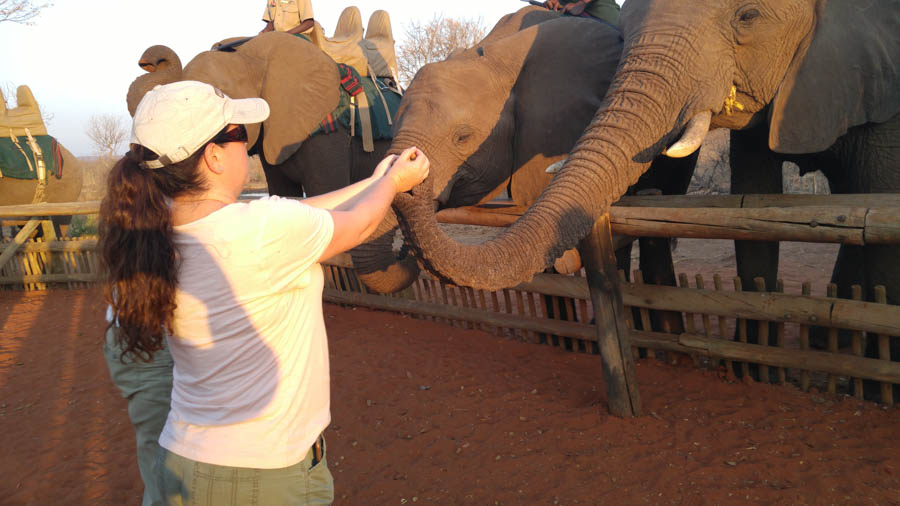
Looks like he enjoys getting his nose rubbed but alas...
She's actually feeding him through the trunk and other way is into the mouth, so you tell the elephant either up or down so they know what to do with their trunk so you can feed them. After we fed them and they left, the warthogs would come in and eat the feed that we dropped - we were told to not bend down and pick it up because we could get bonked on the head with the elephant's trunk
Did You Know?
• Tusks are an elephant’s incisor teeth. They are used for defense, digging for water, and lifting things.
• Elephants have four molars, one on the top and one on the bottom on both sides of the mouth. One molar can weigh about five pounds and is the size of a brick!
• The elephant trunk has more than 40,000 muscles in it.
• Elephants wave their trunks up in the air and from side to side to smell better.
• The elephant’s trunk is able to sense the size, shape and temperature of an object. An elephant uses its trunk to lift food and suck up water then pour it into its mouth.
• Elephants cry, play, have incredible memories, and laugh.
• Elephants can swim – they use their trunk to breathe like a snorkel in deep water.
• Elephant feet are covered in a soft padding that help uphold their weight, prevent them from slipping, and dull any sound. Therefore elephants can walk almost silently!

"In it goes"
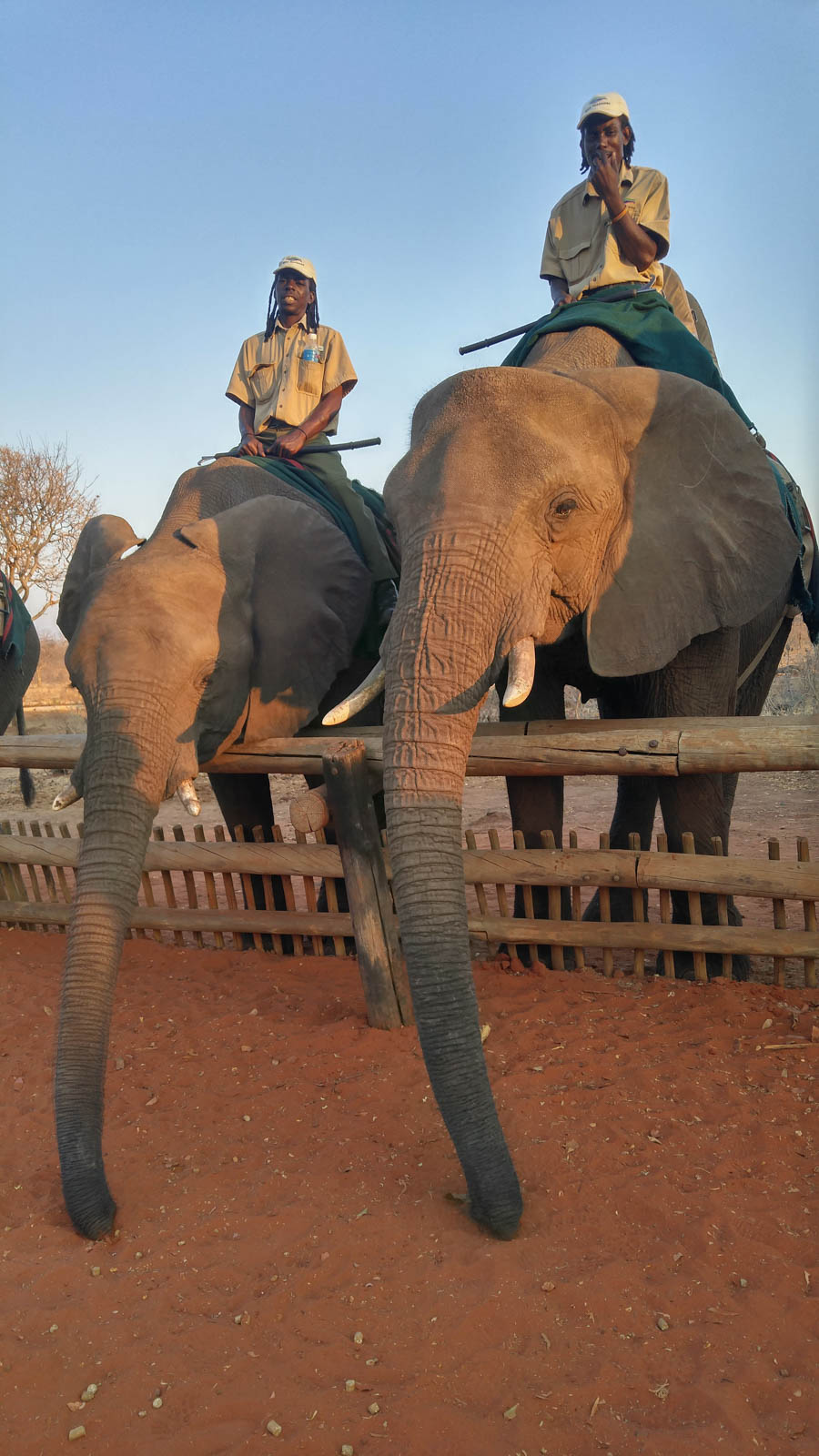
The elephants will always remember this day
Did You Know?
• Elephants use their feet to listen, they can pick up sub-sonic rumblings made by other elephants, through vibrations in the ground. Elephants are observed listening by putting trunks on the ground and carefully positioning their feet.
• Elephants are highly sensitive and caring animals. If a baby elephant complains, the entire family will rumble and go over to touch and caress it. Elephants express grief, compassion, self-awareness, altruism and play.
• Elephants have greeting ceremonies when a friend that has been away for some time returns to the group.
• Elephants have large, thin ears. Their ears are made up of a complex network of blood vessels which regulate an elephant’s temperature. Blood is circulated through their ears to cool them down in hot climates.
• An elephant is capable of hearing sound waves well below our human hearing limitation. The far reaching use of high pressure infrasound opens the elephant’s spatial experience far beyond our limited capabilities.
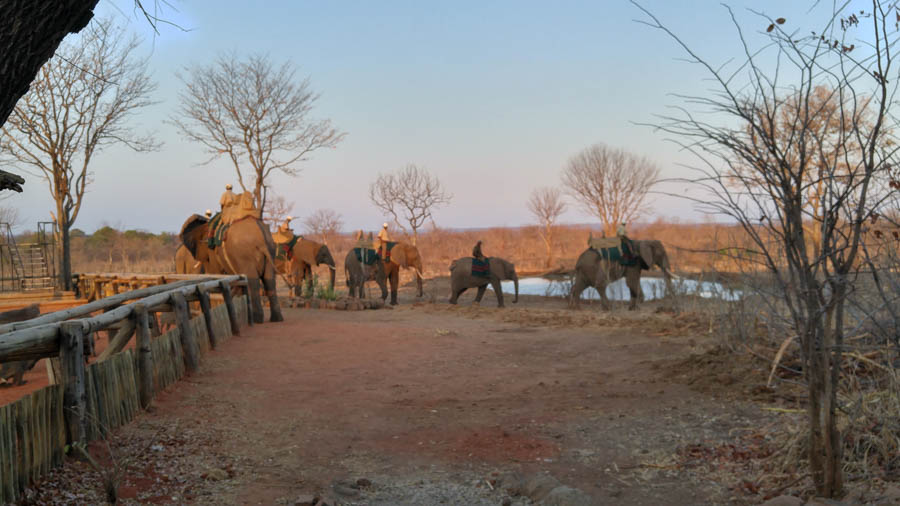
Goodbye guys...

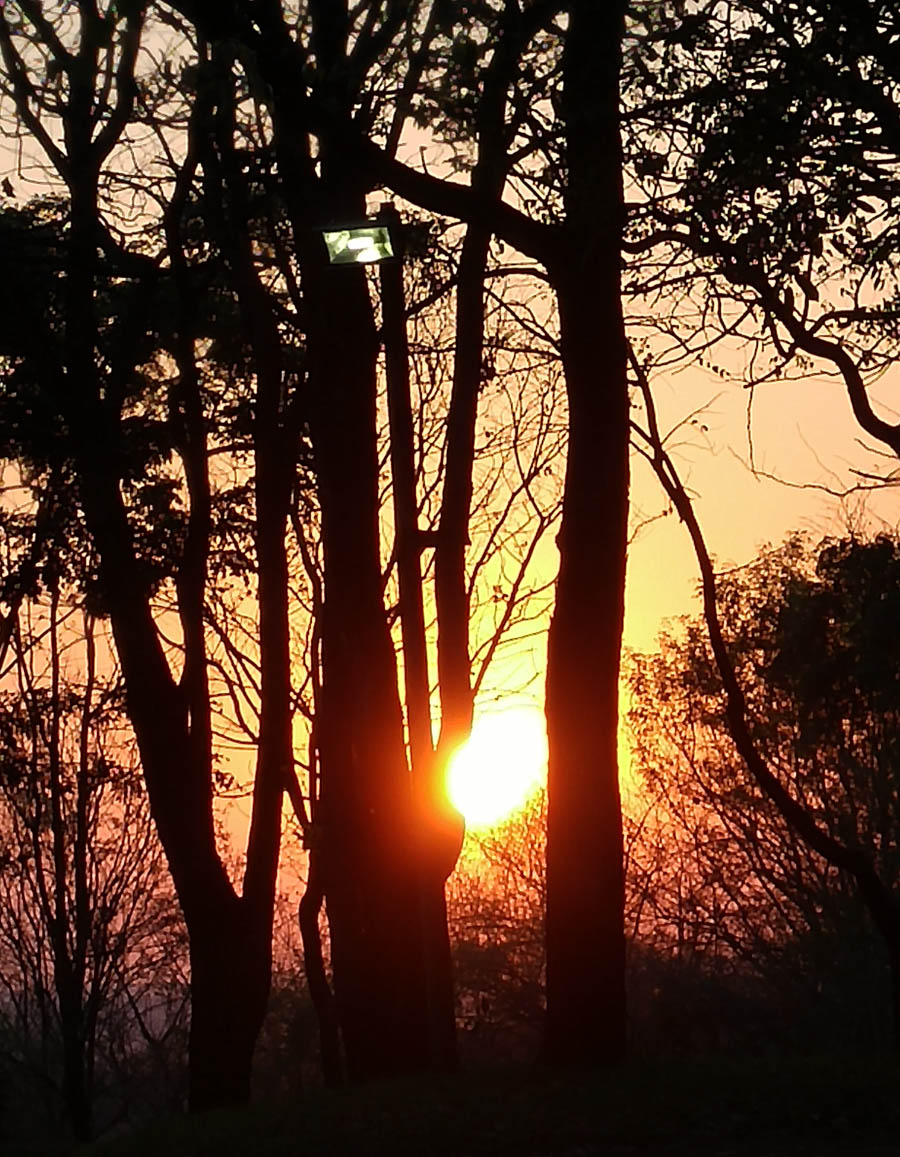
The sun sets quietly over Victoria Falls

A night leisurely evening... We depart early tomorrow
morning for Botswana and return to Victoria Falls

Goodnight
